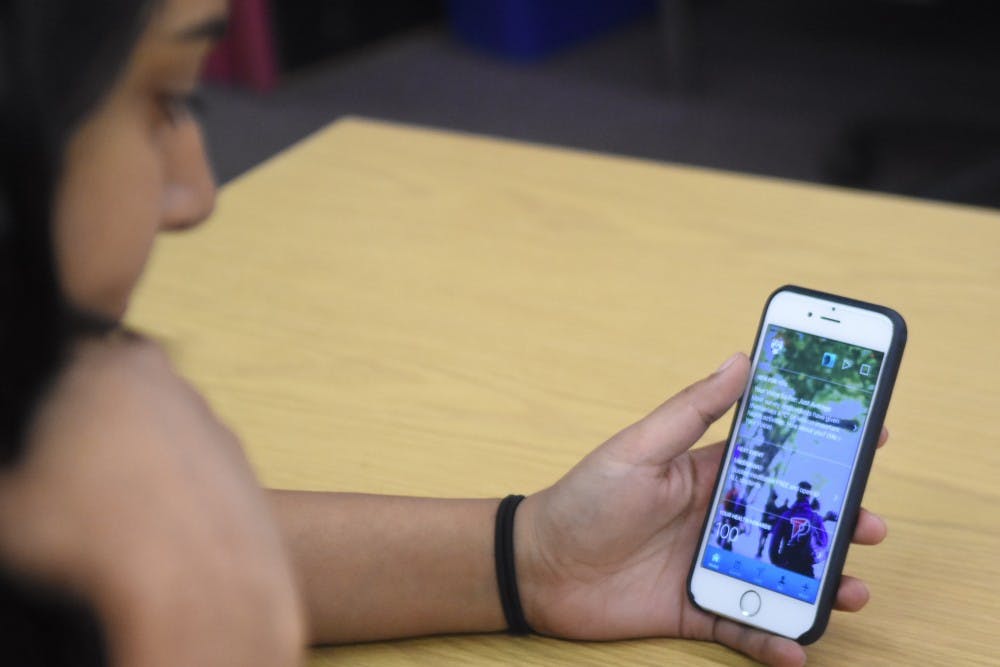Last Wednesday, the next installment in Penn’s mental health saga arrived in undergraduate inboxes, detailing several new initiatives and the expansion of current projects.
The updates, which were shared by Undergraduate Assembly President Jane Meyer, described a collaboration between the office of the Vice Provost for University Life, the UA and the Graduate and Professional Student Assembly to address issues of mental wellness among students.
Seven Penn students have died by suicide since February 2013. In response, the campus has seen an explosion of discussion and debate about how to best help students suffering from mental illness and prevent further issues from arising.
Students and administrators alike have provided varying solutions to the issue, ranging from last spring’s recommendations from the Task Force on Student Psychological Health and Welfare to the demands on the administration issued this semester from a group of students calling themselves the Hamlett-Reed Mental Health Initiative.
Months later, the administration has rolled out a number of new programs, including a wellness app, faculty and staff Wellness Partners, an expansion of CAPS visits during New Student Orientation, easier scheduling of CAPS appointments, and a Penn-hosted conference on mental health, to be held in the spring.
One of the administration’s major developments involved the release of the Penn wellness app, which was previously in beta testing. The app is called Stressbusters Wellness and operates through a platform not specific to Penn. It includes events and resources offered by centers across campus.
Counseling and Psychological Services Director Bill Alexander said that the app, which has so far been downloaded by around 200 students, is still in an introductory phase.
“Lots of the internal stuff in the app ... has yet to be fully developed,” Alexander said. “It’s on there now, but I’m not sure I can say that’s where it’s going to end up when we’re finished with it.”
Vice Provost for University Life Valarie Swain-Cade McCoullum added that Alexander, who spearheaded the development of the app, found it best to integrate Penn-specific information into a general platform.
“He thought that a combination of national information and updates with Penn-specific information would be optimal for us,” Cade said.
Both Alexander and Cade emphasized that students are welcome to provide feedback on the app as it continues to develop. The committee that helped roll out the app, Alexander said, includes students and is hoping to recruit more.
Meyer’s email also detailed the new Penn Wellness Partners program, which designates faculty and staff as “wellness partners” — individuals trained to provide information to Penn students looking for mental health resources. The program was developed by VPUL, but GAPSA and the UA provided input as well.
“There was this missing piece connecting the faculty and staff who went through this training to the students who may need that help,” Meyer said.
The approximately 50 Wellness Partners, Cade said, will begin next semester.
VPUL, the UA and GAPSA also announced an expansion of a pilot program, rolled out during New Student Orientation 2015, in which freshmen from Kings Court College House had the opportunity to visit CAPS. According to a survey conducted among those individuals, a majority of the program’s participants said the visit familiarized them with CAPS and increased their likelihood of seeking CAPS help during times of strife.
Although both Meyer and Alexander said the program had a disappointingly low attendance rate, the administration is hopeful for its future. “It was a good concept and it worked,” Alexander said.
Alexander added that CAPS will soon allow greater flexibility in online scheduling of phone triage assessments, so that students can designate a specific time that they would like to be contacted by a CAPS clinician rather than having to wait all day to be called.
Cade added that CAPS has recently received around half a million dollars in funding, which will be used toward increasing personnel and operating costs.
VPUL also released information about a new conference, to be held at Penn in February, called “Unmasking the Ivy League: A Conference on Mental Health.”
Though most of VPUL’s initiatives focus on helping students who are already experiencing mental illness, administrators and students said they maintain a focus on prevention.
Meyer cited the forthcoming PennFaces program, a website that will share the stories of faculty, staff and students who overcame their own difficulties, as an example of a preventative measure.
“Through the sharing of struggles and sharing of vulnerabilities we can become stronger as a community,” Meyer said.
Cade added that Penn’s faculty and deans continue to have conversations designed to address underlying academic factors that contribute to mental illness. VPUL has also come to realize, she said, that extracurricular activities can contribute to student stress as well.
“I think what is really thoughtful and important on our campus is that people are talking,” Cade said. “We’re in a better place now because it’s an open conversation.”









